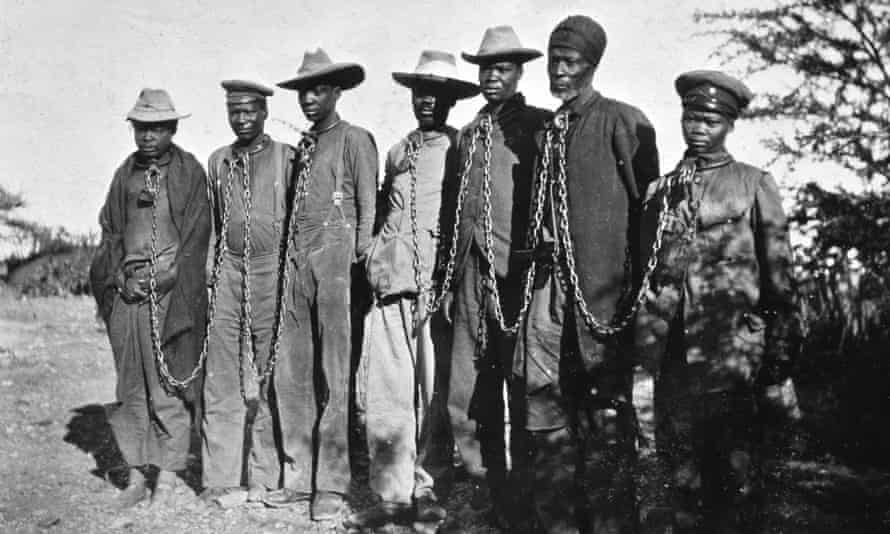The Nava and Ovaherero people of Namibia have spoken out in outrage against the feeble strings-attached apology the German government has given for the genocide carried out between 1904 and 1908.
Apartheid in the southern African country, which was a German colony between 1884 and 1915, legally ended in 1994. Viewed through an economic lens though, apartheid persists. 44% of land in Namibia is commercially owned, an area of land larger than Germany. Over 70% of the land is owned by whites, who make up only 6% of the population. Groups such as the Landless People’s Movement argue that the introduction of liberal ‘democracy’ hasn’t helped reverse the effects of colonialism. A condition imposed when apartheid South Africa withdrew from the country was the protection of private property laws. Like land, water has been kept out of Namibian’s hands due to these laws. Water is controlled by a European-run consortium and 1/3 Namibians struggle to access water daily.
German’s foreign minister issued a formal apology for the genocide carried out a century ago. Historians estimate the violence resulted in the murder of 65,000 out of 85,000 Herero people and 10,000 of the 20,000 Nama people in Namibia. Their land sat upon an abundance of rough diamonds, which were to become the first known blood diamonds and would be violently appropriated for decades, later for British-born company De Beers. The apology has been accompanied with a $1.3billion pledge which becomes a laughable amount after reading the T’s & C’s. The pledge totals under 0.01% of Germany’s expected GDP over the 30-year period during which it’ll be paid. Not only is the amount minute, but the Namibians have not been given the right to choose what the money goes on. It is expected that a large portion will be designated specifically for buying land from willing sellers. In effect Germany has pledged money to members of the German and colonial diaspora as an apology for violently giving Namibian land to the ancestors of that diaspora!
Berlin has ensured that this payment is not officially called a form of reparations due to legal worries. Such an admission could set a precedent that would terrify neocolonial Europe. Although the formal apology is a start, the economic foundation that has defined Europe’s oppressive relationship with the world for centuries will not be willingly upended by the colonisers.
More must be demanded from Berlin, who’s offering provides little to Namibians that continue to live in the 2nd most unequal country in the world.
Mali Kakembo, is a member of the YCL’s Wales branch



